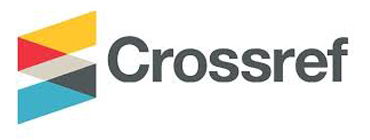ONLINE LEARNING BASED ON HIGHER ORDER THINKING SKILLS IN ELEMENTARY SCHOOL: A CASE STUDY
Abstract
21st century learning is ideally designed with learning categorized as higher order thinking skills (HOTS). This study specifically aims to describe the implementation of online learning in the HOTS category in elementary schools. This research will be conducted on fifth grade students in elementary school in Surakarta. This research uses a qualitative approach with a case study method. Analysis of learning implementation is carried out at the stages of learning planning, learning implementation, and learning assessment. The results showed that at the planning stage, the teacher analyzed the syllabus and content as well as selecting materials, developing teaching materials. At the implementation stage, the teacher uses a whatsapp group and google meet. The technique used is a mixture of synchronous and asynchronous. Students document learning activities such as presentations or simple experiments and upload them via the google classroom link with the design referring to levels C4, C5, and C6. The teacher's analysis and responses are given after the students have collected their exam answers. The results of this study are expected to be a reference source for teachers to make adjustments to the implementation of online learning that allows for stimulating HOTS of students in elementary schools.
Full Text:
PDFReferences
Andriana, E., Ramadayanti, S., & Noviyanti, T. E. (2020, November). Pembelajaran IPA di SD pada Masa Covid 19. In Prosiding Seminar Nasional Pendidikan FKIP (Vol. 3, No. 1, pp. 409-413).
Ainun, Y. (2020). Pembelajaran Online di Tengah Pandemi Covid-19, Tantangan yang Mendewasakan. Times Indonesia, https://www.timesindonesia.co.id/read/news/261667/pembelajaran-onlinedi-tengah-pandemi-covid19-tantangan-yang-mendewasakan
Asmuni, A. (2020). Problematika Pembelajaran Daring di Masa Pandemi Covid-19 dan Solusi Pemecahannya. Jurnal Paedagogy, 7(4), 281-288.
Cahyaningtyas, A. P., Sari, Y., Yustiana, S., & Jupriyanto, J. (2020). Pelatihan Penyusunan Soal-Soal Berbasis HOTS dan Aplikasinya dalam Pembelajaran Daring di Sekolah Dasar. Indonesian Journal of Community Services, 2(2), 162-171.
Darma, I. K., Karma, I. G. M., & Santiana, I. M. A. (2020, February). Blended Learning, Inovasi Strategi Pembelajaran Matematika di Era Revolusi Industri 4.0 Bagi Pendidikan Tinggi. In PRISMA, Prosiding Seminar Nasional Matematika (Vol. 3, pp. 527-539).
Darmalaksana, W., Hambali, R., Masrur, A., & Muhlas, M. (2020). Analisis Pembelajaran Online Masa WFH Pandemic Covid-19 sebagai Tantangan Pemimpin Digital Abad 21. Karya Tulis Ilmiah (KTI) Masa Work From Home (WFH) Covid-19 UIN Sunan Gunung Djati Bandung, 1-12.
Dumford, A. D., & Miller, A. L. (2018). Online learning in higher education: exploring advantages and disadvantages for engagement. Journal of Computing in Higher Education, 30(3), 452-465.
Dewi, W. A. F. (2020). Dampak Covid-19 terhadap implementasi pembelajaran daring di Sekolah Dasar. Edukatif: Jurnal Ilmu Pendidikan, 2(1), 55-61.
Firman & Sari. (2020). Pembelajaran Online di Tengah Pandemi Covid-19. Indonesian Journal Of Educational Science (IJES), 2(2).
Hadi, S., Retnawati, H., Munadi, S., Apino, E., & Wulandari, N. F. (2018). The difficulties of high school students in solving higher-order thinking skills problems. Problems of Education in the 21st Century, 76(4), 520.
Hadianti, Y., Musthafa, B., & Fuadah, U. S. (2021, April). Learning from Home Activity Using Google Form Application toward Online Learning Assessment in Elementary School. In International Conference on Elementary Education (Vol. 3, No. 1, pp. 606-610).
Handayani, J. A., Al-Bahij, A., Bahar, H., & Iswan, I. (2020, December). Analisis Kesiapan Pembelajaran Daring Peserta Didik Kelas I Sekolah Dasar Negeri Ciputat 04 di Masa Pandemi Covid-19. In Prosiding Seminar Nasional Penelitian LPPM UMJ (Vol. 1, No. 1).
Hui, D. S., E., I. A., Madani, T. A., Ntoumi, F., Kock, R., Dar, O., et al. (2020, Februari). The continuing 2019- nCoV epidemic threat of novel coronaviruses to global health—The latest 2019 novel coronavirus outbreak in Wuhan, China. International Journal of Infectious Diseases, 91, 264–66.
Ilmiyah, S. (2020, Februari 11). Surotul Ilmiyah-PBNU Menjawab Tantangan Virus Corona. Retrieved online: https://youtu.be/SPdc4WT8BCg
Ichsan, I. Z., Hasanah, R., Aini, S., Ristanto, R. H., & Miarsyah, M. (2019). Higher order thinking skills assessment based on environmental problem (HOTS-AEP): Mendesain evaluasi pembelajaran abad 21. Jurnal Biotek, 7(1), 14-26.
Jalal, M. (2020). Kesiapan Guru Menghadapi Pembelajaran Jarak Jauh Di Masa Covid-19. SMART KIDS: Jurnal Pendidikan Islam Anak Usia Dini, 2(1), 35-40.
Juliani, T., & Roshayanti, J. S. F. (2020). Analisis kemampuan hots (higher order hinking skill) siswa kelas viii smp pgri 01 semarang pada materi struktur dan fungsi jaringan tumbuhan. Jurnal Ilmiah Edukatif, 6(2), 140-146.
Khusniyah, N. L., & Hakim, L. (2019). Efektivitas Pembelajaran Berbasis Daring: Sebuah Bukti Pada Pembelajaran Bahasa Inggris. Jurnal Tatsqif, 17(1), 19-33.
Kuntarto, E. (2017). Keefektifan model pembelajaran daring dalam perkuliahan bahasa Indonesia di perguruan tinggi. Indonesian Language Education and Literature, 3(1), 99-110.
Kurniasari, A., Pribowo, F. S. P., & Putra, D. A. (2020). Analisis efektivitas pelaksanaan belajar dari rumah (BDR) selama pandemi Covid-19. Jurnal Review Pendidikan Dasar: Jurnal Kajian Pendidikan Dan Hasil Penelitian, 6(3), 246-253.
Khusna, M., Sudaryanto, S., & Dian, D. (2020). Penerapan Model Problem Based Learning (PBL) Berbasis Blended Learning untuk Meningkatkan Motivasi dan Hasil Belajar pada Siswa Kelas VI SD Muhammadiyah Banjaran. Retrieved from: https://eprints.uad.ac.id/21477/
Kusumadewi, R. F., Yustiana, S., & Nasihah, K. (2020). Menumbuhkan Kemandirian Siswa Selama Pembelajaran Daring Sebagai Dampak Covid-19 di SD. Jurnal Riset Pendidikan Dasar (JRPD), 1(1).
Malyana, A. (2020). Pelaksanaan Pembelajaran Daring dan Luring Dengan Metode Bimbingan Berkelanjutan Pada Guru Sekolah Dasar Di Teluk Betung Utara Bandar Lampung. Pedagogia: Jurnal Ilmiah Pendidikan Dasar Indonesia, 2(1), 67-76.
Mulyaningsih, I., & Itaristanti, I. (2018). Pembelajaran Bermuatan HOTS (Higher Order Thinking Skill) di Jurusan Tadris Bahasa Indonesia. Indonesian Language Education and Literature, 4(1), 113-128.
Nopita, R., & Damaianti, V. S. (2018, November). Evaluasi pembelajaran: perencanaan pengembangan alat evaluasi membaca berbasis higher order thinking skills (hots) dengan konteks kecakapan hidup. In Seminar Internasional Riksa Bahasa (pp. 1207-1214).
Okayana, K., Suntoro, I., Sabdaningtyas, L., & Darsono. (2019). The development of higher order thinking skill-based assessment instrument for elementary school integrated thematic learning. Journal of Education and Practice, 10 (15).
Suratmi, Laihat, Asnimar, & Handini, E.O. (2020). Teachers understanding of HOTS based assessment in elementary school. Proceeding of The 2nd International Conference on Elementary School, Vol.2 (1), 1157-1164.
Sadikin, A., & Hamidah, A. (2020). Pembelajaran Daring di Tengah Wabah Covid-19:(Online Learning in the Middle of the Covid-19 Pandemic). Biodik, 6(2), 214-224.
Sobron, A. N., & Bayu, R. (2019). Persepsi siswa dalam studi pengaruh daring learning terhadap minat belajar ipa. SCAFFOLDING: Jurnal Pendidikan Islam Dan Multikulturalisme, 1(2), 30-38.
Setiawan, A. R., & Ilmiyah, S. (2020). Lembar Kegiatan Siswa untuk Pembelajaran Jarak Jauh Berdasarkan Literasi Saintifik pada Topik Penyakit Coronavirus 2019 (COVID-19). EdArXiv. DOI: https://doi. org/10.35542/osf.io/h4632
Shi, H. H., Jiang, N., Cao, Y., Alwalid, O., Gu, J., Fan, Y., & Zheng, C. (2020). Radiological findings from 81 patients with COVID-19 pneumonia in Wuhan, China: a descriptive study . The Lancet Infectious Diseases.
Sofyana & Abdul. (2019). Pembelajaran Daring Kombinasi Berbasis Whatsapp Pada Kelas Karyawan Prodi Teknik Informatika Universitas PGRI Madiun. Jurnal Nasional Pendidikan Teknik Informatika. 8 (1), 81-86.
Sugiyono, D. (2015). Metode penelitian kualitatif, kuantitatif dan R&D. Bandung: Alfabeta. Syarifudin, A. S. (2020). Impelementasi pembelajaran daring untuk meningkatkan mutu pendidikan sebagai dampak diterapkannya social distancing. Jurnal Pendidikan Bahasa dan Sastra Indonesia Metalingua, 5(1), 31-34.
Thohir, M., & Muslimah, K. C. (2020). Evaluation of Arabic Learning Outcomes using Google Form during School Quarantine due to Covid-19 Pandemic. Evaluation, 4(1), 12-22.
Widana, I. W., Parwata, I., Parmithi, N. N., Jayantika, I. G. A. T., Sukendra, I. K., & Sumandya, I. W. (2018). Higher order thinking skills assessment towards critical thinking on mathematics lesson. International journal of social sciences and humanities, 2(1), 24-32.
Yanti, M. T., Kuntarto, E., & Kurniawan, A. R. (2020). Pemanfaatan Portal Rumah Belajar Kemendikbud sebagai Model Pembelajaran Daring di Sekolah Dasar. Adi Widya: Jurnal Pendidikan Dasar, 5(1), 61-68.
Zaini, N., & Khori, N. (2021). Pendampingan pembelajaran daring terhadap peserta didik sd/mi di desa guci dengan menggunakan media pembelajaran interaktif. TA'AWUN, 1(1), 14-27.
DOI: http://dx.doi.org/10.30829/tar.v31i2.3856
Refbacks
- There are currently no refbacks.

Jurnal Tarbiyah by UIN Sumatera Utara Medan is licensed under a Creative Commons Attribution-NonCommercial-ShareAlike 4.0 International License.
Based on a work at http://jurnaltarbiyah.uinsu.ac.id/index.php/tarbiyah.
Permissions beyond the scope of this license may be available at http://jurnaltarbiyah.uinsu.ac.id/index.php/tarbiyah/about/submissions#copyrightNotice.
















